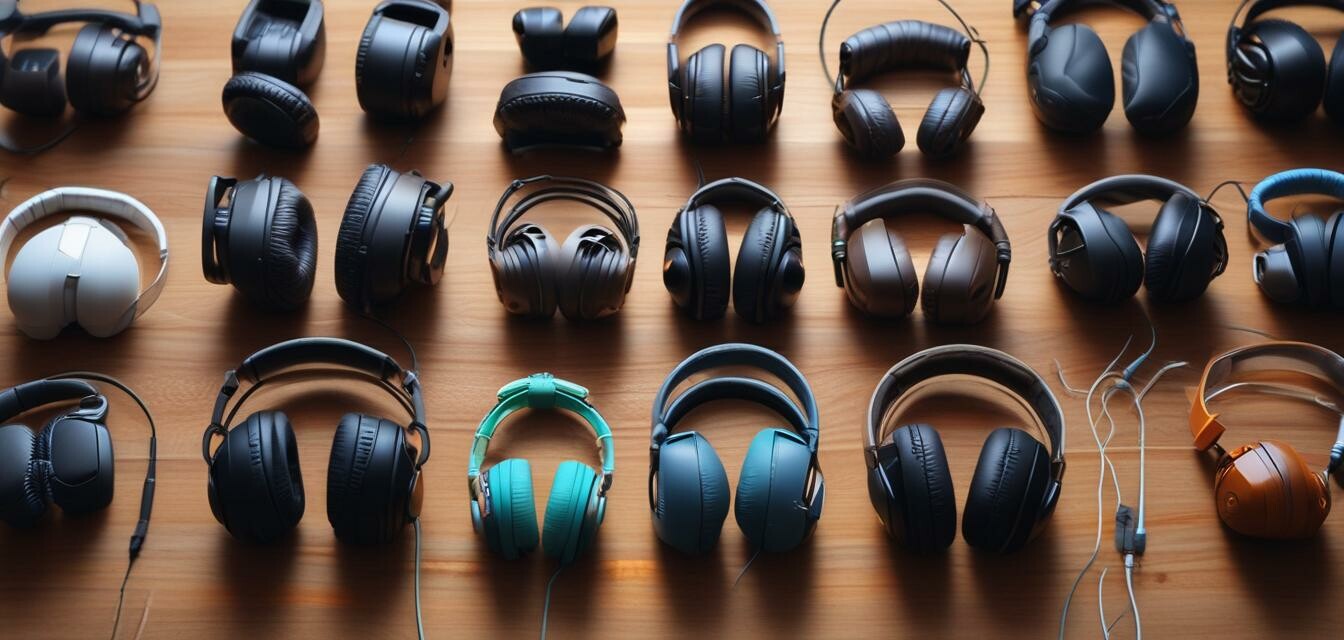
Comparing Audiophile Headphones: Specs That Matter
Key Takeaways
- Understand the importance of sound quality and comfort in audiophile headphones.
- Key specs to compare include frequency response, impedance, sensitivity, and driver size.
- Different types of headphones (over-ear, in-ear, headphones designed for studio use) serve unique needs.
- Price can reflect the quality, but value assessment is crucial for informed decisions.
Choosing the right audiophile headphones can be an overwhelming task, especially with the vast array of options available today. Whether you're a seasoned audiophile or just beginning your audio journey, understanding the essential specifications can significantly enhance your decision-making process. This guide breaks down the critical specs to consider when comparing audiophile headphones to help you find the perfect pair.
Why Specifications Matter
When it comes to audiophile headphones, specifications can mean the difference between an ordinary listening experience and an extraordinary one. Knowing what these specifications mean can aid you in selecting headphones that will meet your listening preferences.
The Essential Specs
| Specification | What to look for | Why it matters |
|---|---|---|
| Frequency Response | 20 Hz - 20 kHz (or wider) | Indicates the range of sound frequencies the headphones can produce. |
| Impedance | 32 ohms or more | High impedance headphones often need a powerful amplifier for optimal sound. |
| Sensitivity | Above 100 dB/mW | Determines how loud the headphones can get with a given power input. |
| Driver Size | 40 mm or larger | Effects bass response and overall sound quality. |
Types of Audiophile Headphones
Understanding the type of headphone that best suits your needs is also vital. Here are the main categories:
- Over-Ear Headphones: Great for comfort and sound isolation, ideal for long listening sessions.
- In-Ear Monitors: Compact design, perfect for portability and on-the-go use.
- Studio Headphones: Designed for accurate sound reproduction, essential for producers and audio engineers.
- Noise-Cancelling Headphones: Ideal for drowning out ambient noise, excellent for travel or noisy environments.
How to Choose the Right Type
Your personal listening habits and situations dictate which type of headphone may be best for you. For instance:
- If you enjoy music while commuting, you may prefer in-ear monitors for their portability.
- For home listening, over-ear headphones generally provide better comfort and sound quality.
- If you work in a studio, opt for studio headphones to accurately monitor sound.
- Consider noise-cancelling headphones if you frequently travel.
Assessing Sound Quality
Sound quality is subjective and can vary greatly from person to person. However, there are some fundamental aspects to consider when assessing headphones:
- Clarity: The ability to differentiate between different musical elements.
- Soundstage: The perceived distance and width of sound, which enhances immersion.
- Balance: Equal distribution of highs, mids, and lows without any particular frequency overwhelming the others.
Testing Headphones
Whenever possible, listen to headphones before purchasing. Use familiar songs across various genres to gauge how they perform. Bringing music that challenges the headphones can be particularly insightful.
Price Versus Value
In the world of audiophile headphones, higher prices sometimes correlate with better sound quality, but this isn’t always the case. Assess the following:
- Brand reputation and history in audio production.
- User reviews and professional ratings.
- Warranty and customer service experience.
Pros
- Enhanced listening experience tailored to personal preferences.
- Wide range of styles and specifications to choose from.
- Potential for long-term investment in quality sound.
Cons
- Higher cost associated with premium models.
- Can be overwhelming due to numerous options and technical specs.
- Subjective sound preferences may lead to dissatisfaction.
Final Thoughts
In summary, when comparing audiophile headphones, it's crucial to understand specifications, types, and individual preferences. Always consider testing headphones in-store and utilize resources like our headphone buying guides for detailed insights. With the correct information, you can make an informed purchase that enhances your listening experience and satisfaction. Enjoy discovering the range of audio possibilities with your new headphones!